Are you looking to streamline your subcontractor commissioning process? In today's fast-paced construction and project management landscape, having a well-defined protocol is crucial for ensuring that all parties are aligned and that projects run smoothly. A clear letter template can not only set expectations but also enhance communication between contractors and subcontractors. Let's dive into the essential elements of a subcontractor commissioning protocol and how you can create an effective template to facilitate successful collaborations!

Scope of Work
The subcontractor commissioning protocol outlines comprehensive guidelines for integrating various system components within projects, specifically focusing on the testing phase for electrical, mechanical, and plumbing systems in commercial buildings. The scope of work encompasses multiple critical tasks, such as verifying adherence to project specifications, conducting performance tests, and ensuring compliance with safety standards mandated by local regulations, exemplified by the National Electrical Code (NEC) and the International Plumbing Code (IPC). Each subcontractor, responsible for specific systems, must provide detailed documentation, including test reports and checklists, which are essential for successful project completion. This protocol is designed to enhance communication between stakeholders, streamline workflows, and minimize defects before project handover. Regular progress meetings will be scheduled in designated locations, ensuring all parties are informed and aligned with the commissioning timeline, ensuring all systems function effectively and efficiently upon project completion.
Project Timeline
The commissioning protocol for subcontractors entails a detailed project timeline outlining critical phases and responsibilities. Initial milestones (e.g., design approval by January 15, 2024) mark the commencement of the project, leading to procurement stages where materials from approved suppliers will be acquired. Subsequent phases include the mobilization date, set for March 1, 2024, ensuring that subcontractors are on-site and ready to begin work. Continuous progress tracking will occur weekly, with deadlines established for key deliverables; for example, structural completion is expected by April 30, 2024. Final inspections and handover processes will be scheduled for May 15, 2024, emphasizing the importance of adhering to these timeframes to maintain overall project integrity.
Payment Terms
Subcontractor payment terms outline crucial financial agreements, ensuring clarity in compensation for services rendered. Standard industry practices typically dictate payment schedules based on project milestones, with a common interval set at 30 days following invoice submission. Specific percentages can be agreed upon, such as 10% retention until project completion, safeguarding against deficiencies in work quality. Milestone payments may correspond to significant phases, like 50% upon completion of the foundation and another 40% upon completion of framing. Invoice requirements often include itemized labor and materials, ensuring transparency in billing for both parties. In cases of disputes, arbitration clauses can help resolve conflicts efficiently, maintaining professional relationships. Local regulations, such as those from the American Institute of Architects (AIA), may also influence payment structures, necessitating compliance to avoid legal complications.
Quality Standards and Compliance
Subcontractor commissioning protocols are crucial for ensuring quality standards and compliance in construction projects. Established guidelines outline necessary procedures for quality assurance (QA) and quality control (QC), affecting multiple phases, including planning, execution, and final inspection. Adherence to standards set by organizations such as the International Organization for Standardization (ISO) is essential, with specific requirements applicable to industry sectors like construction, manufacturing, and engineering. Proper documentation must be maintained throughout the project lifecycle, ensuring traceability of materials, processes, and inspections. This meticulous approach minimizes risks associated with non-compliance, which can lead to substantial financial penalties or project delays. Regular audits and assessments should be scheduled to ensure ongoing compliance with safety regulations and quality benchmarks, fostering a culture of continuous improvement among subcontractors.
Communication and Reporting Channels
Establishing effective communication and reporting channels is essential during the subcontractor commissioning process in construction projects, particularly in large-scale developments like the Hudson Yards in New York City. Clear lines of communication ensure that subcontractors, like electrical or plumbing companies, adhere to operational standards and timelines. Regular progress reports, submitted weekly, must include key performance indicators (KPIs) such as percentage of completion and incident reports. Additionally, utilizing collaboration tools such as Microsoft Teams or Slack fosters immediate feedback and real-time problem-solving. Weekly on-site meetings, attended by project managers and subcontractor supervisors, enhance accountability. Documenting communication through emails and formal reports ensures a comprehensive record, beneficial for future audits and reviews. Effective communication strategies prevent misunderstandings and facilitate successful project delivery within specified deadlines and budget constraints.

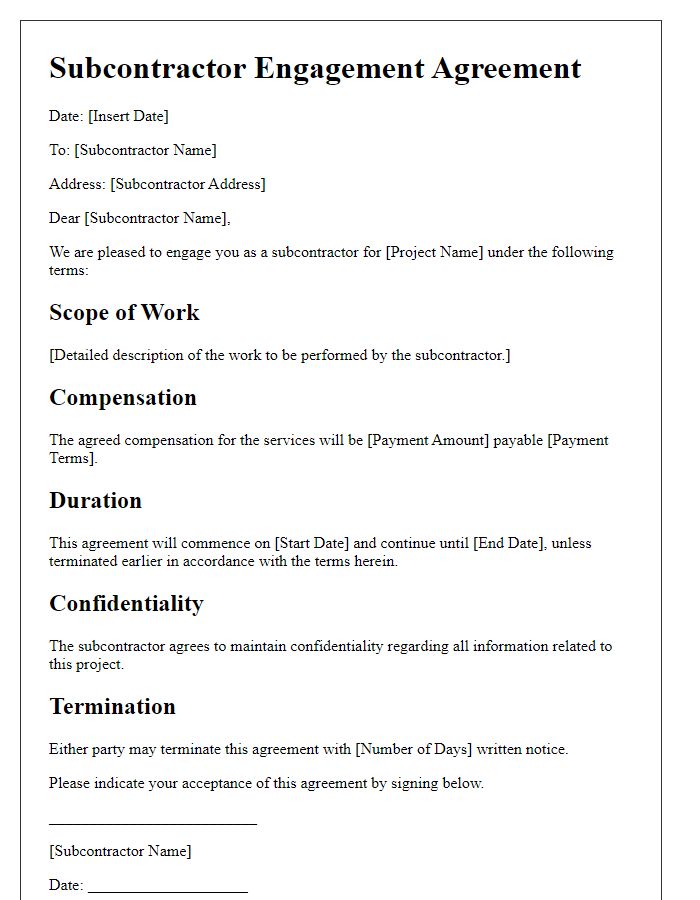
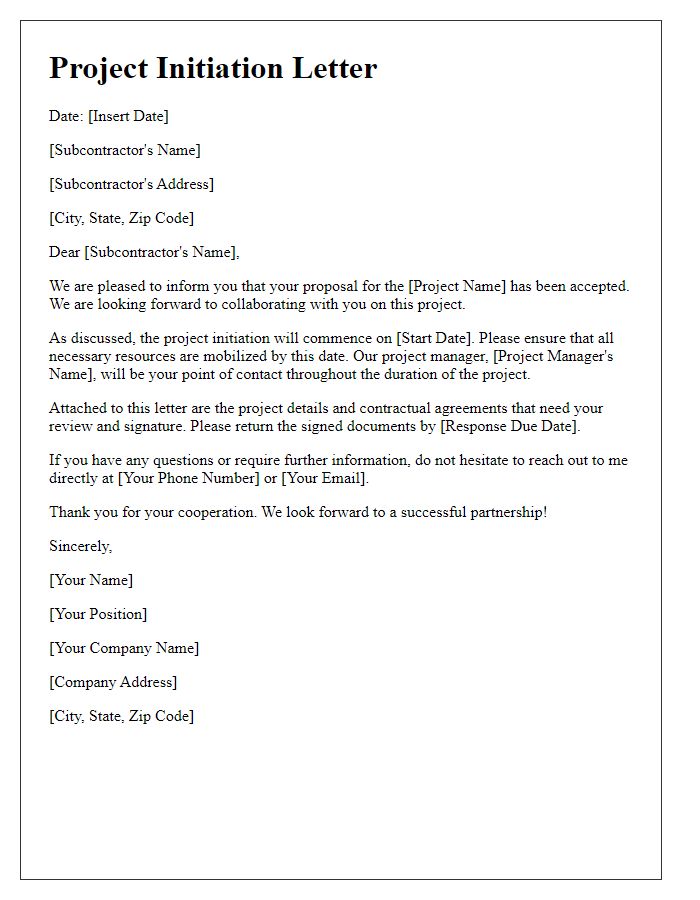
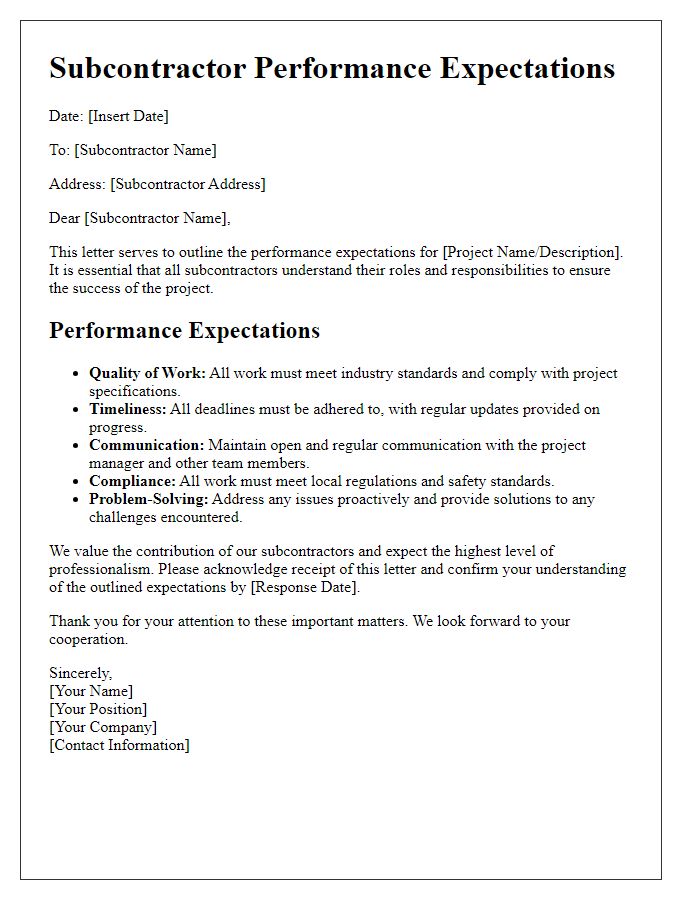
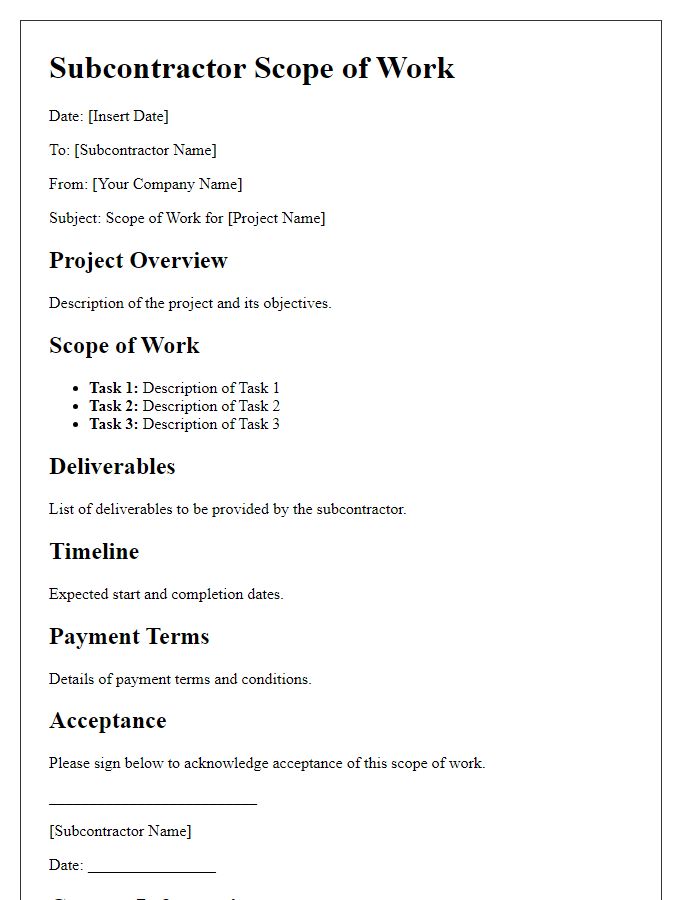
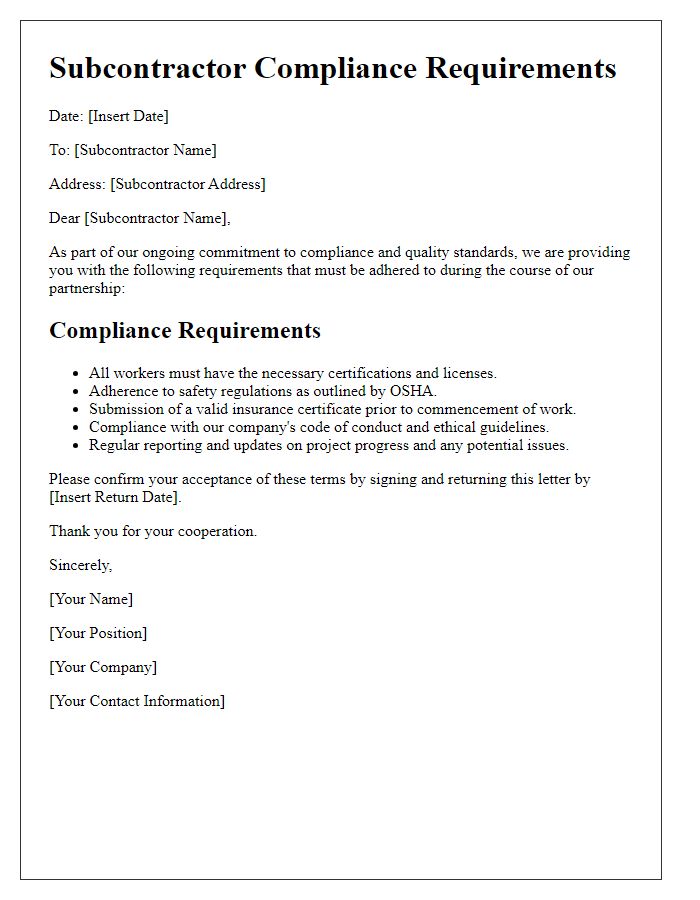
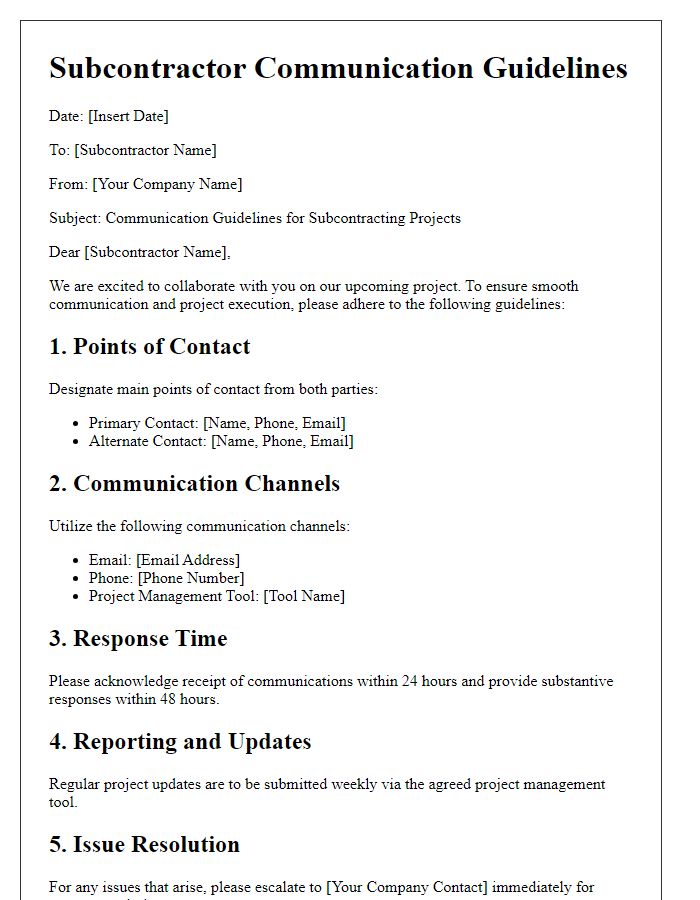
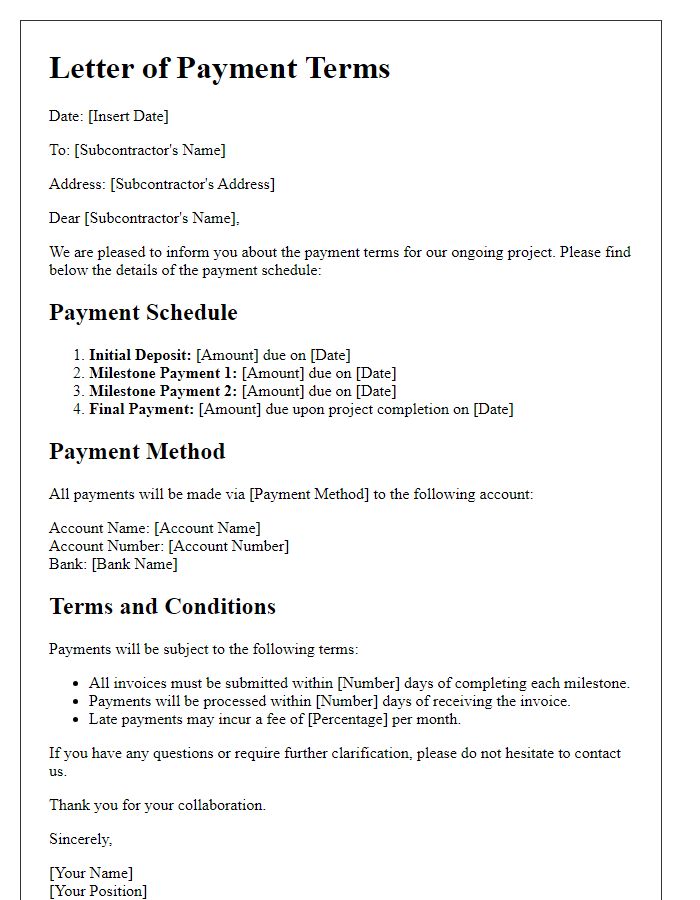
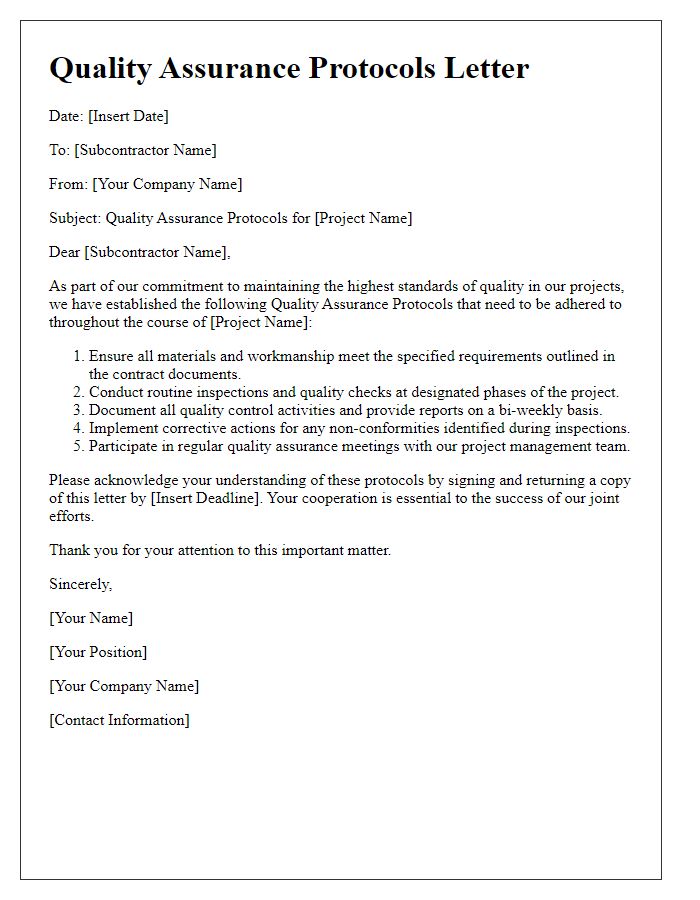
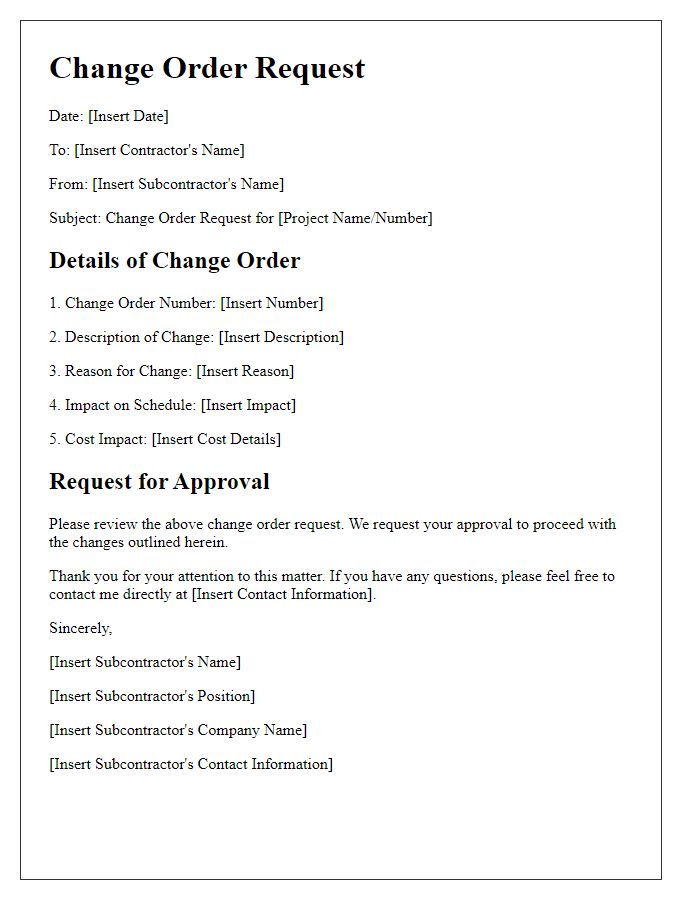
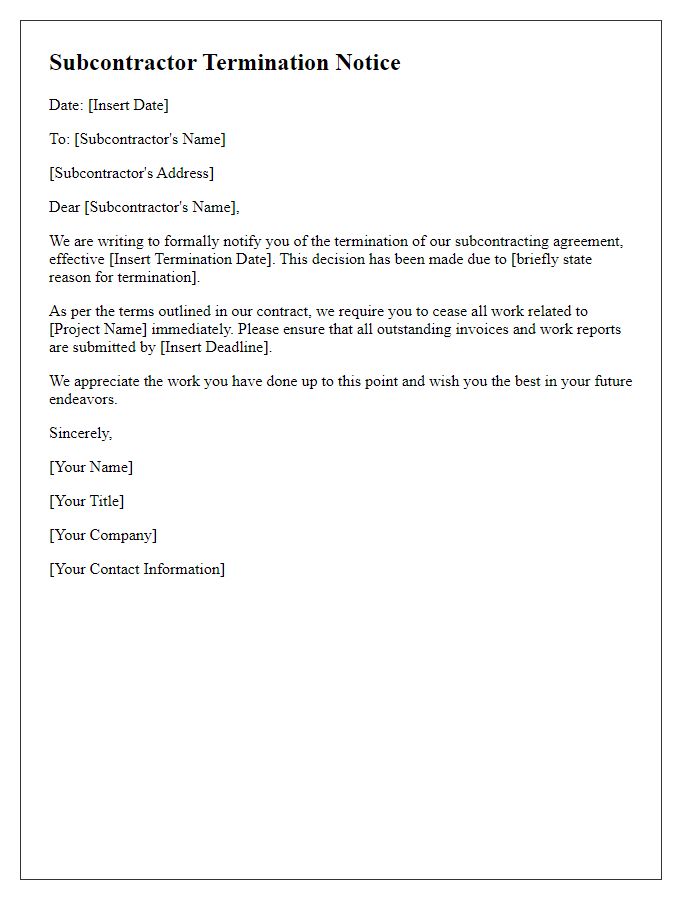


Comments